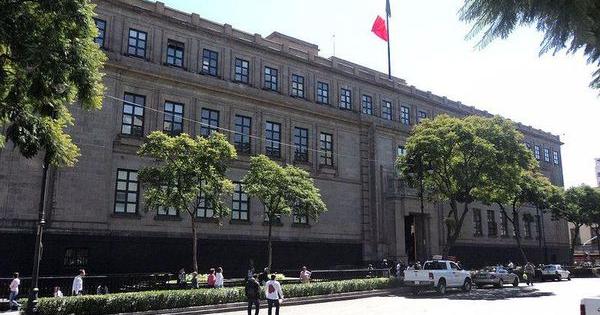- Mexico has delayed marijuana legalisation due to a lack of consensus between Senate legislators. The Supreme Court’s deadline for approval of this new bill was 31 October.
- The Senate committee had already unveiled the final bill, which was being reviewed.
- However, the process will take longer because the deadline was missed. Here we explain what happened.

Everything was ready. Since he became president of Mexico on December 2018, Andrés Manuel López Obrador brought to the table the decriminalisation of cannabis and other drugs as part of his strategy to fight against the powerful organised crime. The Mexican Senate was getting ready for a debate on marijuana legalisation, which was planned for the end of October 2019.
The approval of this bill would be a milestone in a country where, in the last decade, violence associated to drug cartels has already claimed the lives of tens of thousands of people. The members of Parliament from the National Regeneration Movement (MORENA) had the proposed bill prepared, which had already been agreed in public forums. After getting the green light from the Senate, the new bill would go to the Lower House of Congress for review, where it also had the majority of the votes.
However, and against all odds, The Mexican Senate decided to delay the debate until further notice, precisely because an agreement had not been reached, and also due to observations made by the Office for Domestic Affairs and the Secretariat of Health. The aim of the debate was to reform five General Health Act articles to legalise marijuana use for medical, scientific, and recreational purposes, as well as to increase the amount of cannabis permitted for personal use from 5 to 28 grams.
The Upper House Political Coordination Board did not agree with the points that had been written in the Commission of Justice's ruling regarding production, distribution, comercialisation, and license concession. Due to the lack of consensus, the bill wasn't approved before 31 October like originally thought.
Pressure from the Supreme Court
Last year, Mexico's Supreme Court set a legal precedent when they declared five Public Health Law articles unconstitutional, on the basis that these violated the right to free personality development. They instructed the Senate to legislate about this before the last day of October 2019. Despite being given a whole year to make the necessary reforms, the Senate only started work in full swing in early October, thus running out of time to meet the deadline.

The Senate has now asked the Supreme Court for an extension in order to pass this bill. But if the Senate still does not reform the law within the extension, the Supreme Court could eliminate those articles from the legislation altogether. This would allow for home growing but would not create a regulated commercial market.
Senators condemn pressure from lobby groups
The cannabis legalisation bill was initially announced with the aim of empowering the most vulnerable communities in Mexico, so that they could benefit by being guaranteed preferential treatment for license concessions.
There was also a proposal for the creation of the Mexican Cannabis Institute (Instituto del Cannabis para la Pacificación y Reconciliación del Pueblo), which would be assigned to the Secretariat of Health and would be responsible for the emission of permits. The draft also stated that, for commercial and research licenses, foreign ownership would be limited to a maximum of 20% of the capital structure.
Multinationals are on the lookout for legal modifications, lobbying the authorities so that these are adapted to their needs.
Nonetheless, the 74-article draft bill also contemplates strict norms regarding labelling and packaging made from biodegradable materials. In addition, it does not define a legal process for obtaining local marijuana seeds, and demands a precise follow-up from germination to consumption, as well as analysis before the product is commercialised.
Organisations condemn this, stating that this would produce a 'Monsanto effect', because these requirements are virtually unachievable for small producers and would therefore only favour large amounts of foreign capital. In fact, the big firms, particularly Canadian and North American, have not hidden their interest in Mexico due to its market size and low production cost.
These multinationals are keeping an eye on this constitutional and legal modification which is likely to happen soon, by lobbying legislators so they get a law to suit their needs. The longer it takes to reach a decision, the greater the chances that foreign marijuana companies will flood the Mexican market, leaving local producers out of the game.
The delay will possibly extend until the first weeks of November, but this is still unclear. In the meantime, there is also great uncertainty surrounding the Supreme Court's decision. After this latest legislative hindrance, and if the Senate's proposal is not approved, the Supreme Court should issue a general declaration of unconstitutionality. This matter would then be referred to one of the ten ministers, who would need to elaborate a new draft bill only on the articles declared unconstitutional. There is no definite time frame for this.
Due to the fact that legislators have not reached an agreement, the process to change the law could take a different bureaucratic route. So now we will have to wait and see how things shape up in Mexico.





Comments from our readers
There are no comments yet. Would you like to be the first?
Leave a comment!Did you like this post?
Your opinion about our seeds is very important to us and can help other users a lot (your email address won't be made public).